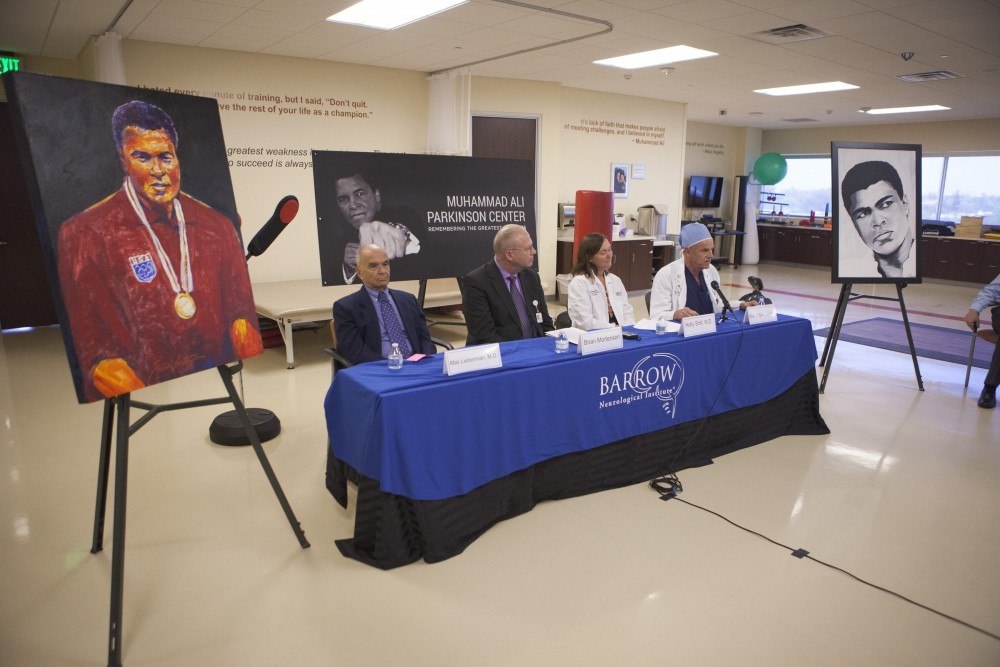
Muhammad Ali Had ‘a Mission’ to Fight Parkinson’s Disease
“Muhammad felt he had a mission,” said Dr. Abraham Lieberman, Ali’s personal physician and Chair of Movement Disorders Research at Barrow. “Muhammad rose from a young boy in Louisville to the heavyweight champion of the world. This Center was part of it. This was his mission.”

Barrow Neurologist
After Ali was diagnosed with Parkinson’s disease in the 1980s, Dr. Lieberman said, he resisted numerous attempts to lend his name to campaigns to battle the disease. But that changed after Ali met Dr. Lieberman, who wrote a poem that persuaded the Champ to join with Lieberman and Phoenix philanthropist Jimmy Walker to establish the Muhammad Ali Parkinson Center in 1997.
“Muhammad stood up to this disease for 34 years,” said Dr. Lieberman, who last saw Ali on the day he died. “The last few years were really tough.”
Holly Shill, MD, director of the Muhammad Ali Parkinson Center, said there was no medical evidence that boxing had contributed to Ali’s Parkinson’s disease, as many have speculated.
“If you take people who don’t have a history of head injury, the risk of developing Parkinson’s is about one percent at age 60,” Dr. Shill said. “If you look at people who do have a history of head injury – pretty significant head injury, enough to either go to the hospital or get medical attention as a result – that number goes up to about one and a half percent. So it increases your risk some, but it’s not like everybody who has a head injury gets Parkinson’s disease.
“Is there a dose relationship, if you get enough head injuries, does that increase your risk?” Dr. Shill said. “It’s not clear whether that happens with Parkinson’s disease.”
Asked about whether there will be a cure for Parkinson’s, Dr. Shill said she prefers to focus on treating it as a “chronic condition that can be managed. If we can slow the disease we can keep it in a very manageable state. If you talk to patients, a lot of them would be OK with that.”
B-roll from the press conference can be downloaded by clicking on the links below, then right clicking on the video and selecting “Save Video As”:
Behind the Scenes
Dr. Robert Spetzler, Director of Barrow
Dr. Holly Shill, Director of Parkinson Center
Dr. Abe Lieberman, Ali’s physician
A patient tribute video can be found on the Muhammad Ali Parkinson Center web page.
